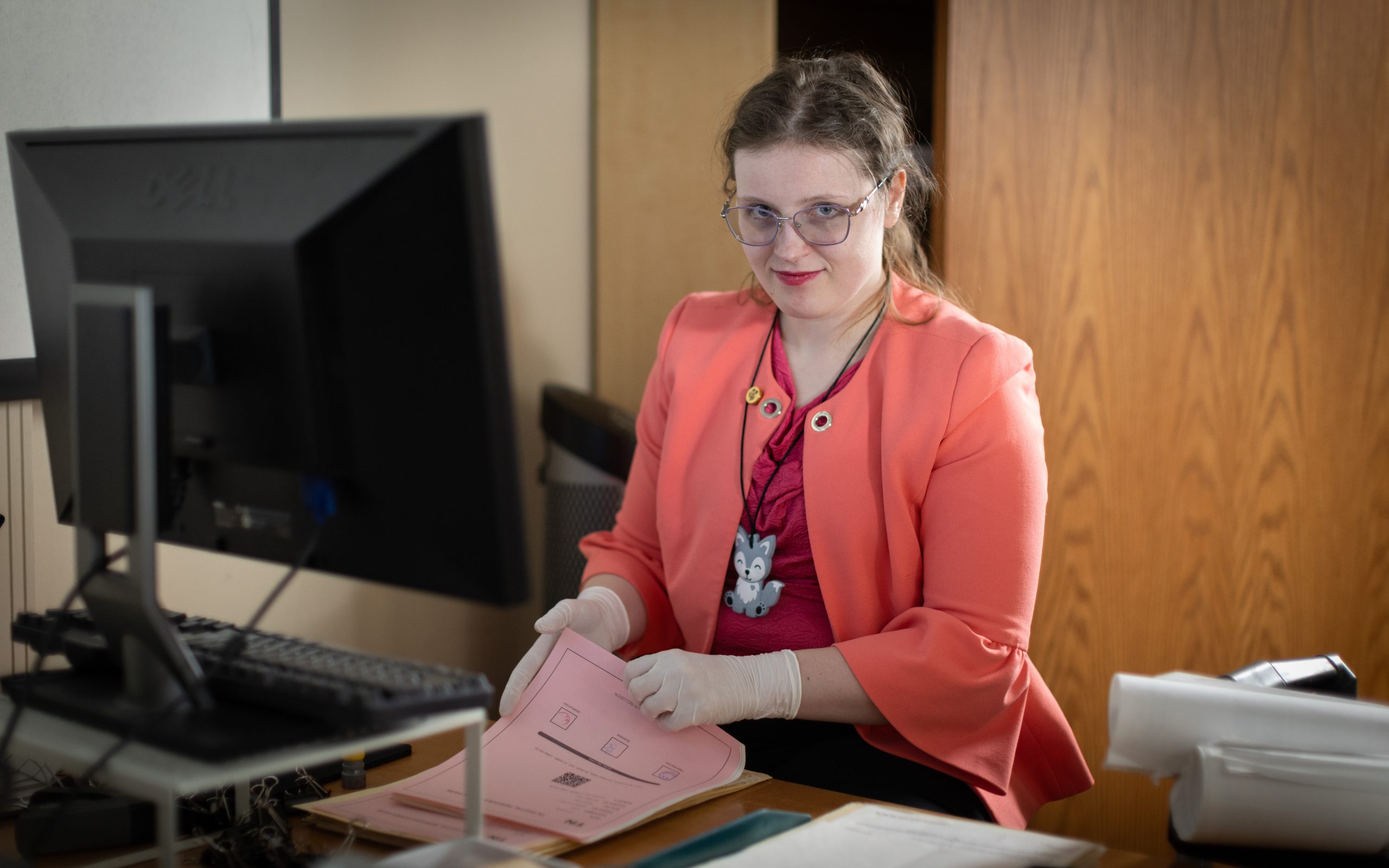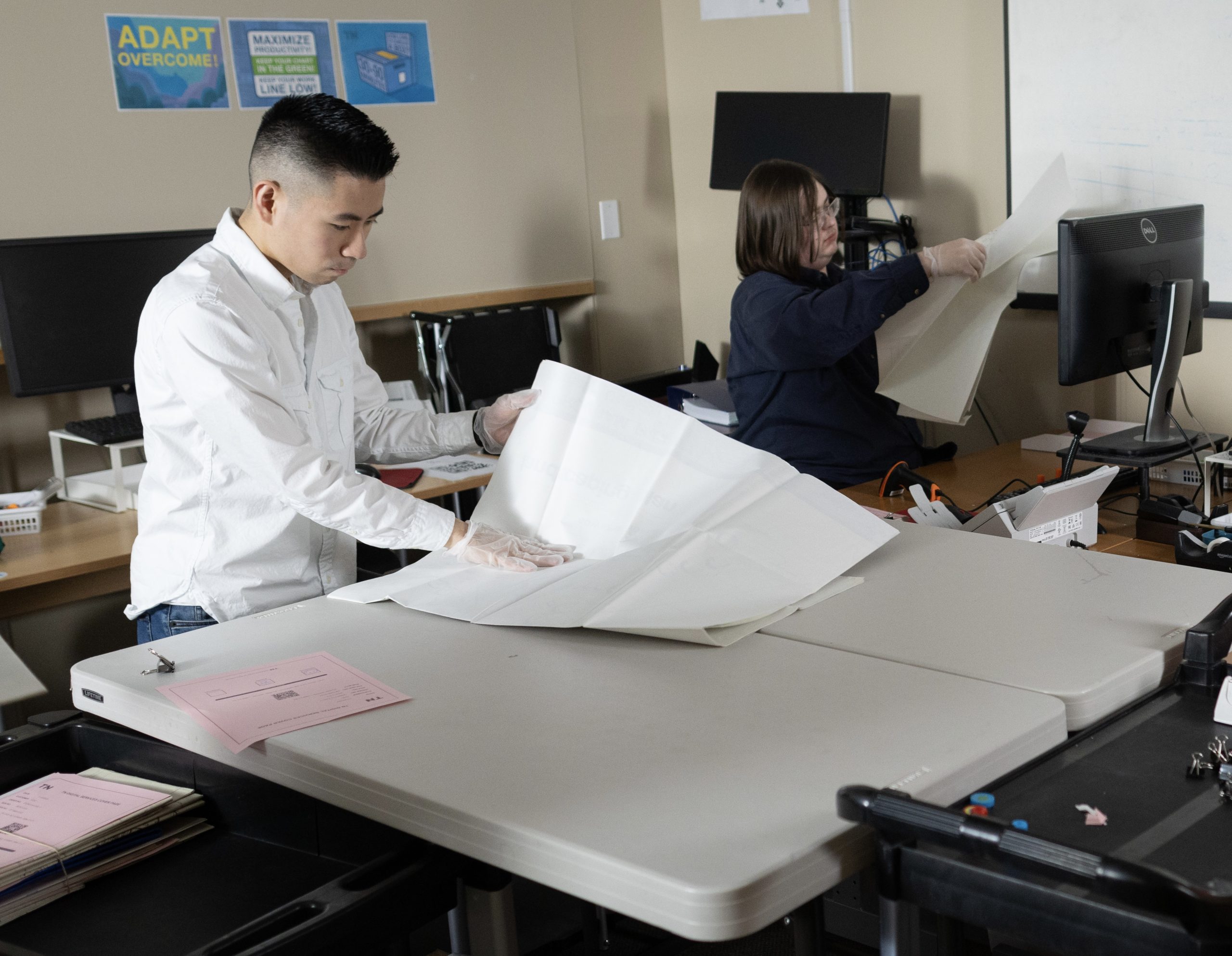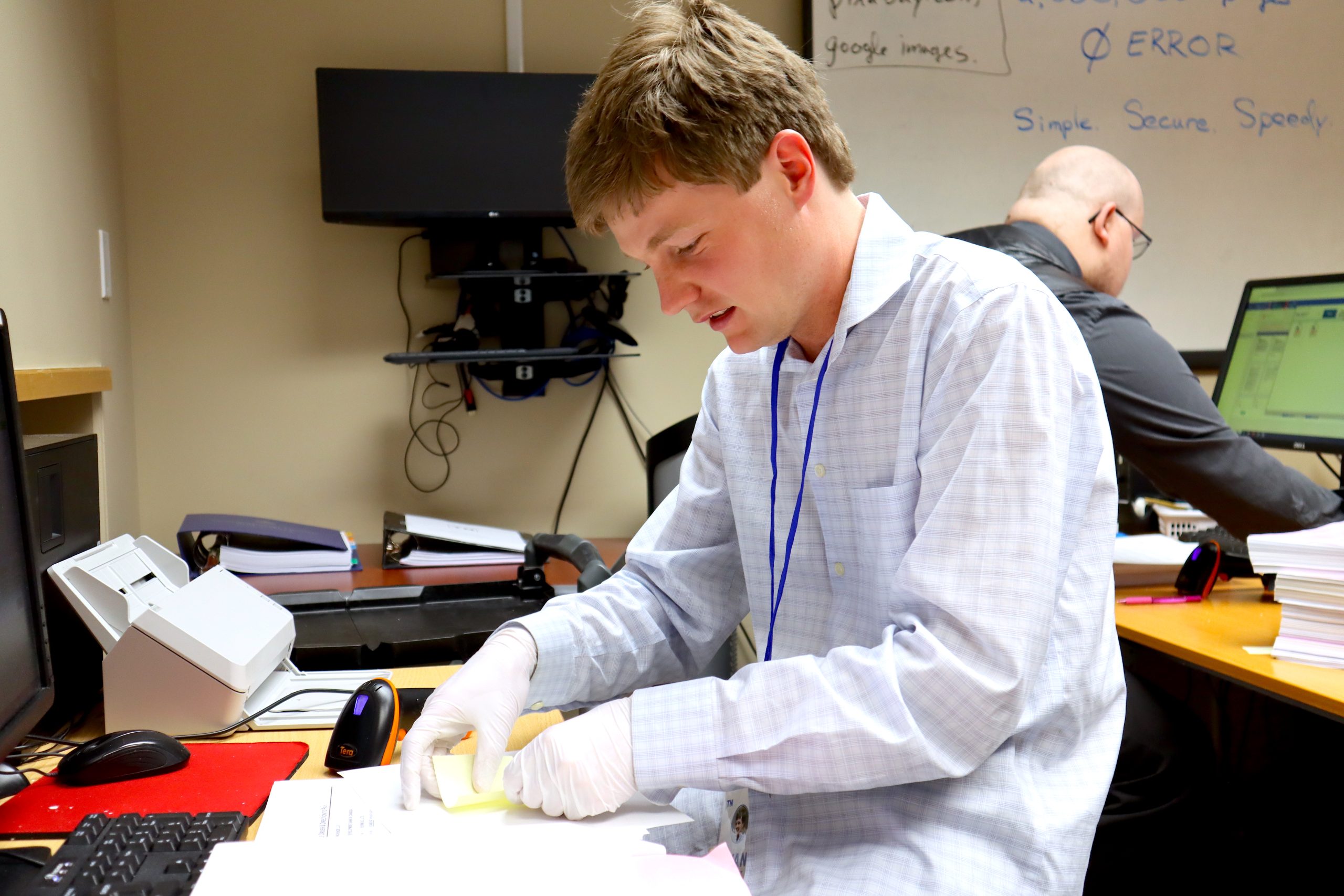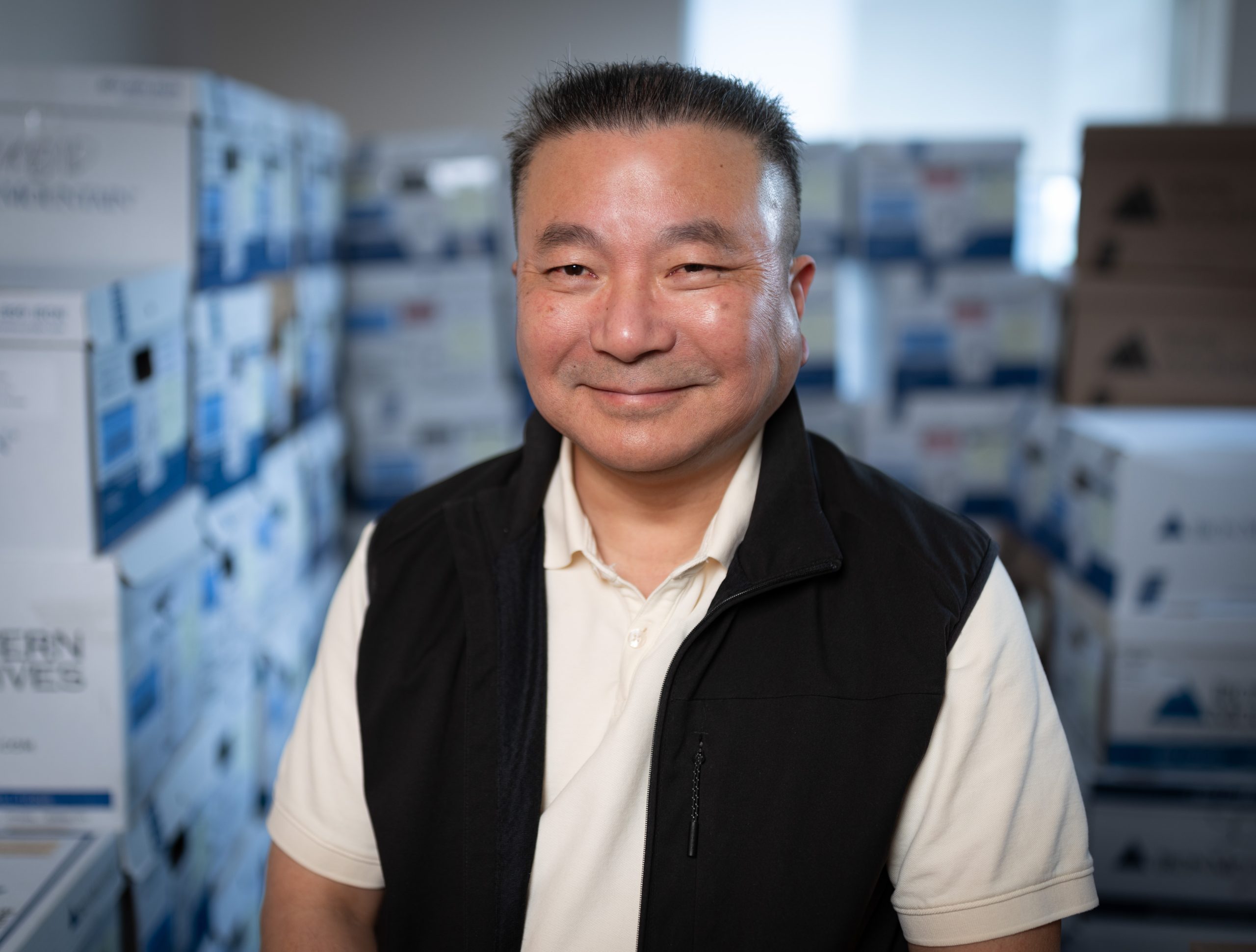Brian Huang was diagnosed with severe autism when he was four years old. He couldn’t speak or follow simple instructions.
Now in his early 20s, Brian is a high-school graduate, thanks in large part to the love and dedication of his parents. He works for Technology North Digital Services (TNDS), an Edmonton company that digitizes documents for law firms, governments and other organizations.










